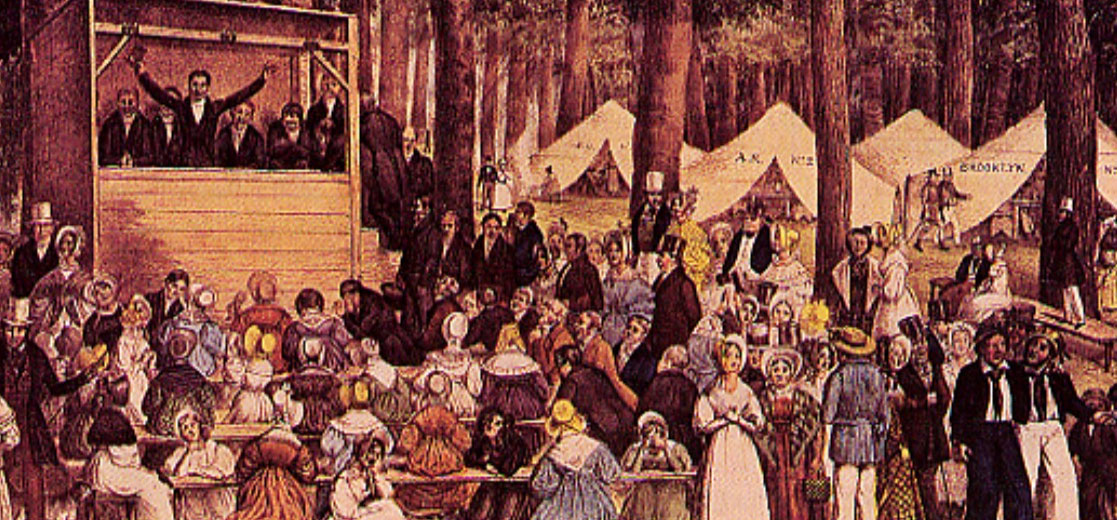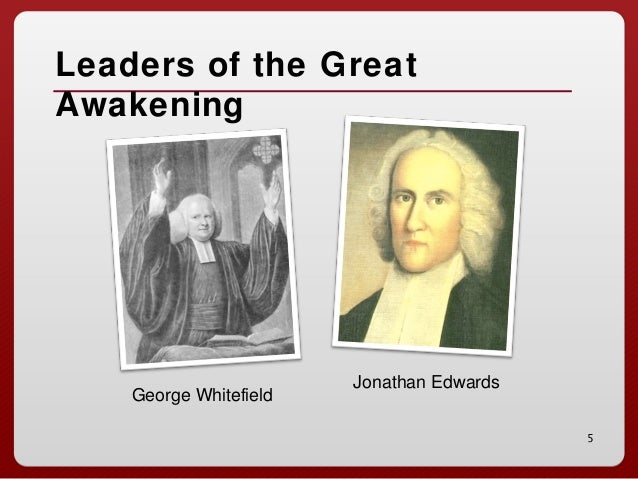5 Results Of The Great Awakening
- 5 Results Of The Great Awakening Kate Chopin
- 5 Results Of The Great Awakening Movie
- 5 Results Of The Great Awakening War

5 Results Of The Great Awakening Kate Chopin
- Time Period
- 1733 - 1770
- Description
- The First Great Awakening transformed religious life and theology in the colonies during the mid-18th century. Proponents of the revivals worried that religion had become a cold, intellectual assent to truth rather than a vital relationship with the person of Christ.
The Great Awakening was not universally acclaimed, but Congregationalist pastor Jonathan Edwards defended the revivals as God's 'own peculiar and immediate work.' George Whitfield was the most prominent figure of the First Great Awakening. His preaching tours of the colonies drew massive open-air crowds.
Older Protestant denominations faced competition from newer evangelical denominations like Baptists and Methodists. The upstart groups remained a minority in most of the colonies, but their increasing size and influence presaged the Second Great Awakening and the advent of an evangelical religious majority. - Interactive Timeline(s)
- Prominent Religious Events and People in American History
Baptist Religious Events and People in American History
Methodist Religious Events and People in American History
Presbyterian Religious Events and People in American History - Browse Related Timeline Entries
- Prominent Religious Events and People in American History
Baptist Religious Events and People in American History
Methodist Religious Events and People in American History
Presbyterian Religious Events and People in American History - Narrative
- The 'First' Great Awakening was only labeled as such during the 1840s by proponents of the 'Second' Great Awakening, but even in the mid-18th century American Protestants knew that the revivals they observed were transforming religious life and theology. Proponents of the revivals worried that religion had become a cold, intellectual assent to truth rather than a vital relationship with the person of Christ. Furthermore, the traditional Calvinist view of conditional atonement--that God offers salvation only to the elect--began to soften as many revivalist preachers proclaimed that God promised salvation to all who repented of their sins and trusted in Christ.
The Great Awakening was not universally acclaimed. Conservative ministers criticized the revivals for excessive emotional outbursts and doctrinal irregularity. Congregationalist pastor Jonathan Edwards responded to those critics with a widely-distributed essay, A Faithful Narrative of the Surprising Work of God (1737), in which he argued that the revivals were God's 'own peculiar and immediate work.'
While Edwards did much to advance the Awakening through his books and sermons, it was a British evangelist, George Whitfield, who was the most prominent figure of the First Great Awakening. Whitefield conducted regular preaching tours of the colonies from 1738 until his death in 1770. His expressive, extemporaneous preaching style drew in large open-air crowds that routinely numbered as many as 30,000 listeners.
The First Great Awakening had lasting significance for the religious landscape in America. Older Protestant denominations, like Congregationalism and Anglicanism, now faced competition from newer evangelical denominations like Baptists and Methodists. The upstart groups remained a minority in most of the colonies, but their increasing size and influence presaged the Second Great Awakening and the advent of an evangelical religious majority. - Religious Groups
- Timeline Entries for the same religious group Anglicanism Family
Anglicanism Family: Other ARDA Links
Baptist Family: Other ARDA Links
Methodist/Pietist Family: Other ARDA Links
Presbyterian-Reformed Family: Other ARDA Links - Biographies
- Whitefield, George
Edwards, Jonathan
Tennent, Gilbert
Occom, Samson - Movements
- Missionary Movement
Abolitionism
The First Great Awakening
The Third Great Awakening
The Fourth Great Awakening - Photographs
George Whitefield preaching in Philadelphia- Internet Archive- from Life of George Whitefield by A. S. Billingsley
George Whitefield preaching at a horse race- Internet Archive- from Life of George Whitefield by A. S. Billingsley
John Wesley preaching- Hathi Trust- from The Great Revival of the Eighteenth Century by Edwin Paxton Hood- Book/Journal Source(s)
- Ahlstrom, Sydney, 2004. A Religious History of the American People. New Haven: Yale University Press.
- Web Page Contributor
- Paul Matzko
Affliated with: Pennsylvania State University, Ph.D. in History

Watch Children of Israel: The Great Awakening's Children of Israel: Great Awakening on Livestream.com. Mar 7, 2017 - Explore Dannia Mosso's board 'Period 2: The First Great Awakening' on Pinterest. See more ideas about first great awakening, great awakening, awakening.

5 Results Of The Great Awakening Movie
The Great Awakening Digital History ID 91. Annotation: The Great Awakening, the most important event in American religion during the eighteenth century, was a series of emotional religious revivals that spread across the American colonies in the late 1730s and 1740s. Remember, this.WIN is the public face of the Great Awakening, and, as a member here, you agree to represent the Great Awakening movement against Globalism, Communism and Progressive Insanity in the best, most positive way possible. NOTE: Your comments and posts may become news.

5 Results Of The Great Awakening War
By the 18th century, there were concerns about the declining religious devotion and the increase of secularism emerging in the United States. The result of these changes was the Great Awakening, the first major american revival. There were many preachers that were outspoken from their religion. George Whitefield was one of many of those preachers. Whitefield was very compassionate during his speeches, preaching the words of God, weeping with sorrow, spreading the word of God, and hitting people on an emotional standpoint. He made numerous evangelizing tours through the colonies and attracted large crowds. Nathan Cole, like thousands of others, came to see George Whitefield. Nathan Cole wrote in “The Spiritual Travels of Nathan Cole” and said, “When I saw Mr. Whitefield come upon the Scaffold he lookt almost angelical; a young, Slim, slender, youth before some thousands of people with a bold undaunted Countenance, and my hearing how God was with him every where he came along it Solemnized my mind; and put me into a trembling fear before he began to preach; for he looked as if he was Cloathed with authority from the Great God; and a sweet sollume solemnity sat upon his brow And my hearing him preach, gave me a heart wound…” Cole had just described that hundreds upon hundreds of people came to see Whitefield and speakers like him. This greatly revived religion in many peoples’ lives. Cole said that the speech given touched him in the heart as it did with thousands of others.
Many have said that the Enlightenment occurred around this time as well. However, the great awakenings were gatherings that replaced intellectual, rational sermons with emotional salvation experiences, stressing faith over reason. The Great Awakening occurred all over the nation and helped break down